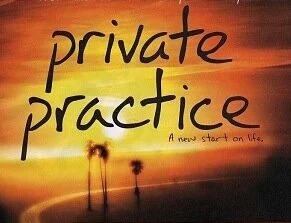“Those who can’t do, teach.”
I recently heard this from an anesthesia resident on a sailing trip in the SF bay. It was a gorgeous sunny day with perfect breeze.
The resident was finishing up his training and was inquiring about what my experience has been in private practice. He was also considering academics.
I finished my pediatric anesthesia fellowship almost 7 years ago. Since finishing, I’ve been working with the same group doing private practice anesthesia (mostly adults, some kids). We are an MD-only group.
Coming out of residency, the work load in a busy private practice isn’t that bad. It’s easier than residency actually; it’s thrilling do be doing your own cases.
In private practice, you learn to work independently and efficiently. The workload is varied; from thoracic and vascular, to OB, to cataracts, it’s all you.
It feels good to become proficient at your trade. Staying calm under extreme pressure, being able to reason when most others begin to fall apart is what we are taught in our residency. You really have a chance to hone those skills working in private practice.
There are subtleties in private practice anesthesia that I did not realize coming into this world.
One thing that I noticed is that there is a lot of production pressure that I did not experience first hand as a resident.
Surgeons and staff want to get the cases moving. Work flow is a big consideration. You see, the economics of surgery is that surgeons bring in the money by booking patients at the surgi-centers and/or hospitals. That money is what drives the center. The staff and administrators are paid by that money. This makes surgeons carry King/Queen status.
There are subtleties in private practice anesthesia that I did not realize coming into this world.
Also, there is a huge unpredictability to each day. You almost never know when you are going to finish. This can lead to massive frustration when trying to make a commitment after work. Adjust your expectations accordingly.
Surgeons and administrators may pressure you to do cases even if you believe the patient is not optimized for surgery. Do not succumb to this. Hold your ground. If anything bad happens, you are all alone. The people who pressured you will not back you up. The group will not back you up. In fact, there is a clause in most contracts specifically stating that you are on your own in case of a lawsuit.
On the brighter side, we are well compensated. I have taken plenty of time off each year. I’ve had the opportunity to travel all over the world plus have had the opportunity to participate in medical missions for cleft lip/palate surgery. Despite the brief interaction we have with patients, it can be very rewarding, particularly with kids.
I bought a house in the bay area, got married, and enjoy a lovely life adventuring around the neighborhood and the world. I feel so grateful for that.
When considering private practice anesthesia, do realize that the market is changing in healthcare. There are big mergers. Small private practices are being bought by large corporations. Those corporations are skimming off a percentage of our billings and putting it into their pockets. This is all in the name of improved bargaining power for hospital contracts and increased job stability. Corporate medicine: a brave new world is emerging: Kaiser-ization of healthcare. I’d be happy to go into how I think this will affect you and the field in general, but it could get long. Feel free to contact me with questions
And finally, in considering the original question of should I do private practice or stay in academics ( i.e. Those who can’t do, teach?”), I’ll share a thought.
Academics’ energies are divided between teaching residents and doing research. I thought I would never be interested in those activities. However, those are the things in medicine that make a difference.
If you find something you are curious about or want to change, research seems a powerful way to go about doing that. I have a great respect for it now that I shamefully admit I did not have before.
In sum, you can’t go wrong with either decision: academics and private practice are both good. Like everything else , there are pluses and minuses to everything. It helps to be informed into what you’re getting into. Ask lots of questions!
At some point you’ll dive in and figure it out for yourself.
These are just a few thoughts. Hope it helps.


















